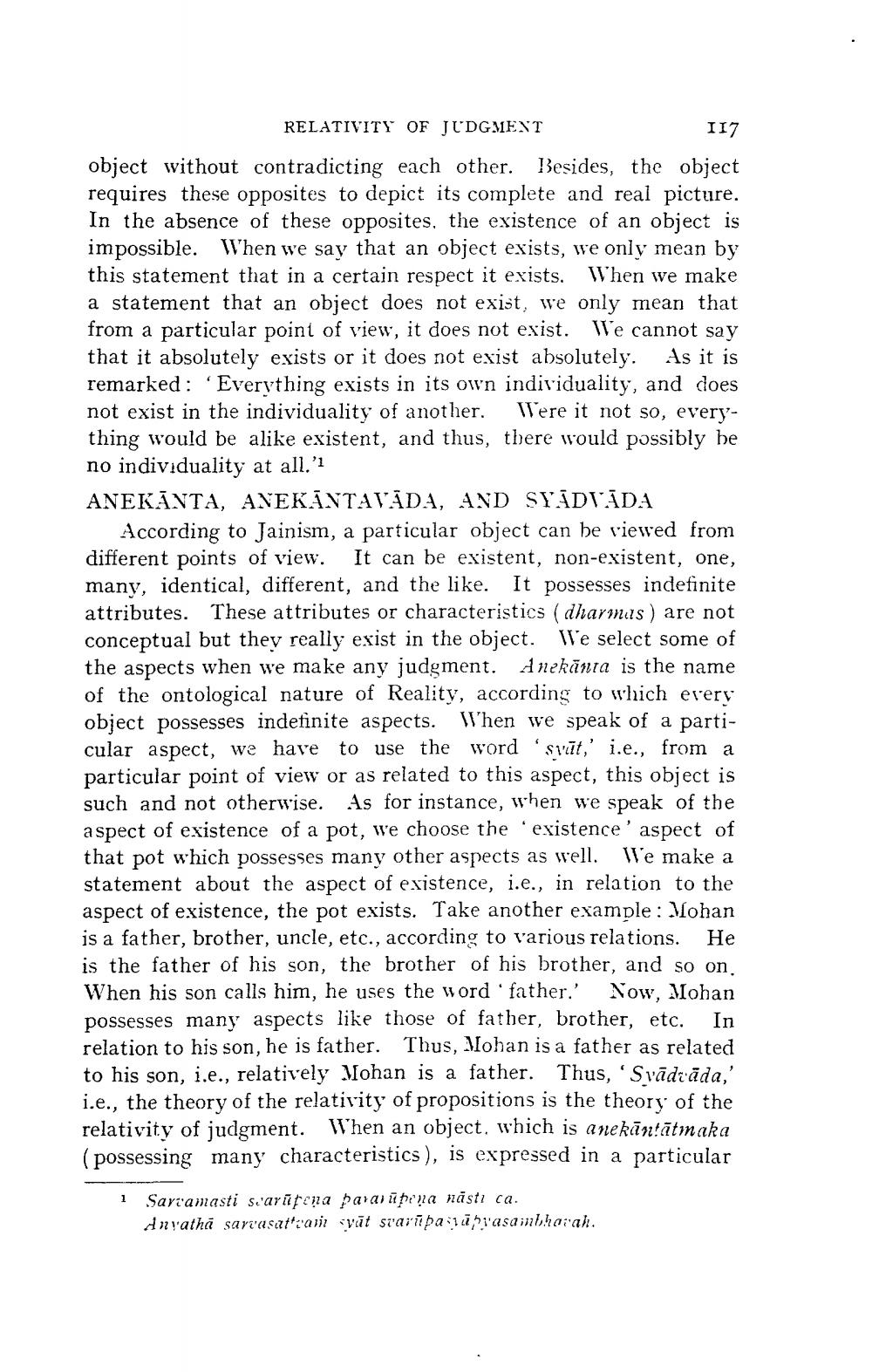________________
RELATIVITY OF JUDGMENT
117
object without contradicting each other. Besides, the object requires these opposites to depict its complete and real picture. In the absence of these opposites, the existence of an object is impossible. When we say that an object exists, we only mean by this statement that in a certain respect it exists. When we make a statement that an object does not exist, we only mean that from a particular point of view, it does not exist. We cannot say that it absolutely exists or it does not exist absolutely. As it is remarked: Everything exists in its own individuality, and does not exist in the individuality of another. Were it not so, everything would be alike existent, and thus, there would possibly be no individuality at all.'1
ANEKANTA, ANEKANTAVADA, AND SYADVADA
According to Jainism, a particular object can be viewed from different points of view. It can be existent, non-existent, one, many, identical, different, and the like. It possesses indefinite attributes. These attributes or characteristics ( dharmas) are not conceptual but they really exist in the object. We select some of the aspects when we make any judgment. Anekanta is the name of the ontological nature of Reality, according to which every object possesses indefinite aspects. When we speak of a particular aspect, we have to use the word syut,' i.e., from a particular point of view or as related to this aspect, this object is such and not otherwise. As for instance, when we speak of the aspect of existence of a pot, we choose the existence' aspect of that pot which possesses many other aspects as well. We make a statement about the aspect of existence, i.e., in relation to the aspect of existence, the pot exists. Take another example: Mohan is a father, brother, uncle, etc., according to various relations. is the father of his son, the brother of his brother, and so on. When his son calls him, he uses the word 'father.' Now, Mohan possesses many aspects like those of father, brother, etc. In relation to his son, he is father. Thus, Mohan is a father as related to his son, i.e., relatively Mohan is a father. Thus, 'Syādvāda,' i.e., the theory of the relativity of propositions is the theory of the relativity of judgment. When an object, which is anekānṭātmaka (possessing many characteristics), is expressed in a particular
He
1
*
Sarvamasti searupeņa pavarupeņa nāsti ca. Anyatha sarvasat cam syāt svarūþaṣṣāpyasambhovah.




